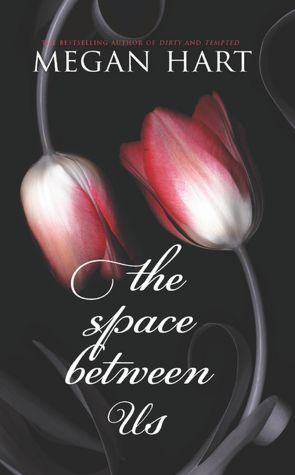Kathryn Shay is with us today, talking about her work and what it takes to write an amnesia story line. Make sure to check back later this morning on contest details.
Good morning, Book Binge Readers.
I was interviewed on your site when my last book came out, but for those of you who weren’t here then, let me give you a few details about me and my work. I’m Kathryn Shay and I write for Harlequin Superromance and The Berkley Publishing Group. I have 23 Supers and ten Berkley Sensations published; there are over four million copies of my books in print. I write contemporary romance, sometimes with a bit of suspense thrown in. I deal mostly with everyday characters like firefighters, cops, teachers and construction workers, but occasionally I have a TV chef, a senator or a secret service agent as the hero or heroine. I like to explore social issues and I’m told my books are highly emotional, often tearjerkers, and have hints of humor.
My current release from Harlequin Superromance is A MAN SHE COULDN’T FORGET. It’s the story of Clare Boneli, who wakes up in the hospital with amnesia after a terrible accident in the early hours of the morning. She doesn’t remember who she is or the two men who flock to her bedside. One tells her he’s the owner of the TV station where she had a popular cooking show and is her love interest, and one is the illustrator of her successful cookbooks and her best friend. Though she doesn’t recognize them, she catches on quickly that there is tension between them. As the story progress, the reader finds out before Clare does that neither man wants her to remember all the events preceding her accident.
Amnesia was an interesting subject to tackle. I don’t know why I chose it. I’ve always liked reading amnesia stories and could imagine the fear and angst a person would feel when she didn’t even recognize herself in the mirror. I did a lot of initial research and I’m glad I did, because what I found out literally drove the plot. First off, I had to decide the kind of amnesia to give her. I chose retrograde amnesia, which is the kind where a person remembers procedural things, and what she did minutes before, but can’t remember events in the past. Another crucial fact I discovered was the events closest to trauma which caused the memory loss come back last. This fit beautifully into my plot because the hero, Brady (no spoiler, you know this right away), was in her life long before her lover, Jonathan, so she remembers Brady and is drawn to him more because of that fact.
Another fascinating point that I discovered was the importance of the dreams an amnesiac has. I had to do a lot of research on the symbols in dreams: what different colors mean, which animals represent, what and how an abrupt change in the scene has significance Again, what plot points this provided!
Mostly, I read about the condition, but I also had the enjoyable experience of watching amnesia movies. My oldest sister, to whom the book is dedicated and whose recipes appear throughout the story, was staying with me at the time, so I ordered several films and we watched them together: SPELLBOUND, REGARDING HENRY, MEMENTO, ANASTASIA. These gave me interesting takes on the malady. I liked SPELLBOUND best, and it was amazingly accurate for a movie made in 1945, but a funny thing happened with that DVD. I made a mistake in ordering and got the Chinese version! Luckily it had English dialogue, but Joan and I got a big kick out of the Chinese subtitles.
So, what do you think? Do you like amnesia stories? Do they seem credible to you?
Let’s talk.
Kathy
PS—Many of the recipes in the book are from my Italian family. They are published on my website. Mange!





Good morning, Ms Shay!
I have read a few stories with amnesia as part of the plot; some work, some… not so much.
I keep saying that it’s all in the writing, even if I can’t quite articulate it any better than that.
Sometimes the author makes me believe the situation only to have a magical resolution undermine all the groundwork of the rest of the book.
Best of luck with the book!
azteclady–I agree that a good writer can pull just about anything off!
to all–I’ll take questions, answers, meandering thoughts from any reader.
Kathy Shay
I love the movie Memento and Regarding Henry! Not bad with two handsome main men who have lost their memories ;D
Was it hard to research the topic of amnesia for A Man She Couldn’t Forget?
I remember wanting to eat while reading the book. I’ll definitely be checking out the recipes.
The reseach wasn’t hard to do, KB, but it was difficult infusing it into the book and not boring the reader. But as I said, much of it drove the plot. Clare’s memory returns in keeping with the actual facts of how memory returns. Of course, the condition is amorphous, so I had leeway to include what I needed to do. And yeah, the movies were fun to watch.
LOL, Casee. I was hungry writing it!
Kathy
Hi Kathryn!
I want to know how long did it take you to write this book?
I Heart,
It takes me about three months to write a Super, about six to write a longer one. That said, if I only have two months for a HQ book, I can do it. A MAN SHE COULDN’T FORGET took about three months to write. Now, that’s for the initial manuscript, sent to the editor, polished, etc. We get them back for revisions, then for line editing, then for proofreading. So for it to be completely finished takes longer that the three months. Writing a book is quite a process!
Kathy
Hey and welcome. I have to say this book sounds intersting I’ve added it to my must buy list. Thanks for stopping by
Wow – I can’t imagine writing a book in 3 months. How wonderful for you.
If the contest is still on – please count me in! 🙂
I like the amnesia plot line and this books sounds like a great one.
I love when recipes are included in books. They really help set the tone of the book.
Deidre
I am an unabashed lover of amnesia stories. I love the idea of Tabula Rasa, the opportunity to wipe the slate clean and do over.
I havent read a SuperRomance in probably 10 yrs but I will look out for this one 🙂
this kind of blog always useful for blog readers, it helps people during research. your post is one of the same for blog readers.
The big thing that bugs me is how many authors confuse brain injury amnesia with dissociative fugue. They present symptoms more typical of dissociative fugue (total retrograde memory loss, no impairment in other cognitive areas or in anterograde memory, and spontaneous recovery of memory) but claim it was caused by a head injury rather than psychological stress.
The only people I’ve heard of with head injuries who actually forget their identity (as opposed to just certain events) also had severe anterograde amnesia (couldn’t make new memories) and very often other cognitive issues as well. It would be very hard to write from the perspective of someone like that because they don’t remember earlier events in the story, that the audience and author remembers.